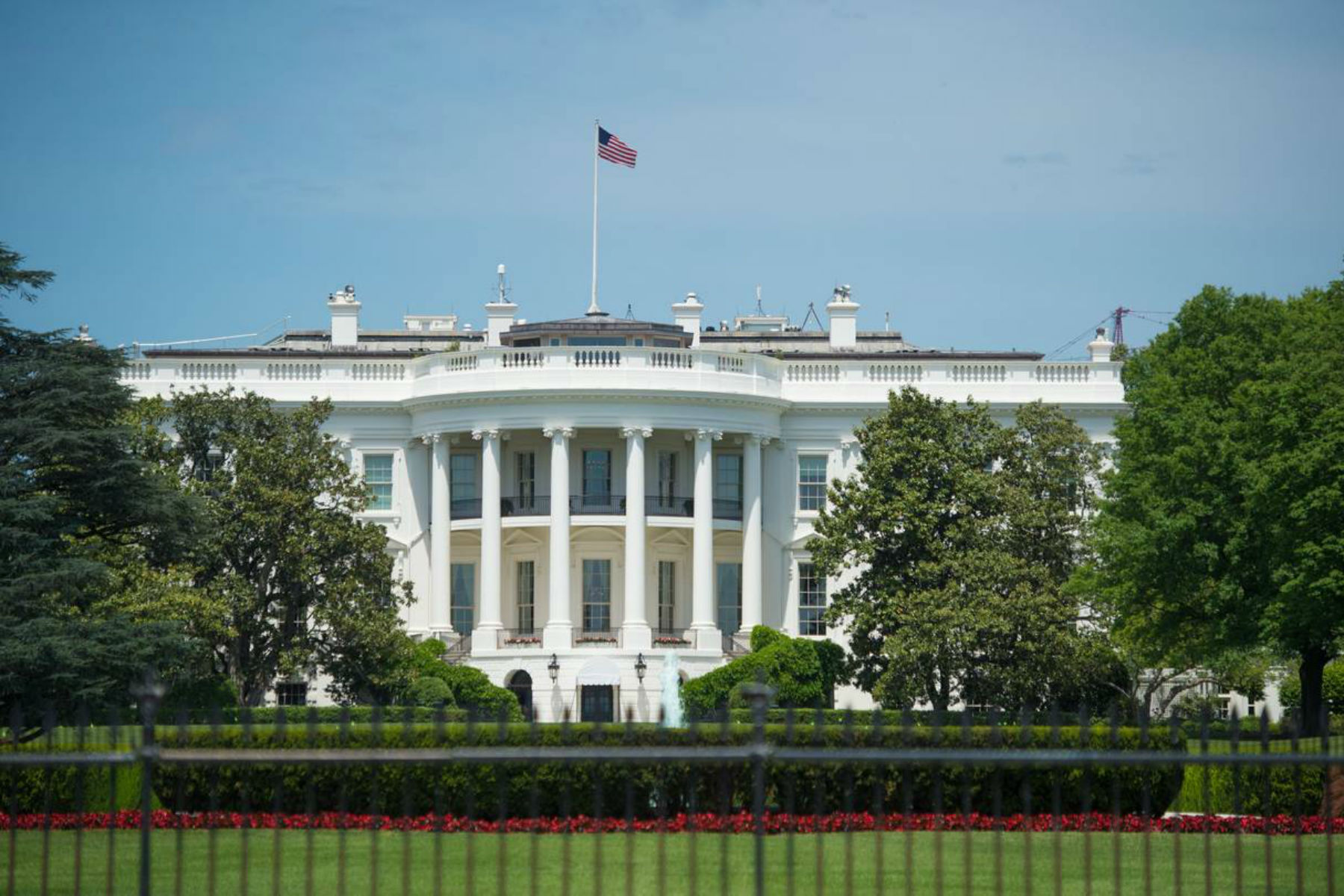
Can Regime Politics Remedy Cultural Decay?
The author does not take seriously the Aristotelian understanding that politics is the architectonic science, and that culture will be downstream from it.
The British art historian Kenneth Clark maintained that civilization depends not on material prosperity, but on confidence and energy. When a civilization dies, it dies of exhaustion. James Davison Hunter makes a similar point in Democracy and Solidarity: On the Cultural Roots of America’s Political Crisis.
Hunter, a distinguished University of Virginia sociologist, offers an extended meditation on the maxim that politics is downstream from culture. American democracy long depended for its energy and vitality on what Hunter calls its “hybrid-Enlightenment,” which has now run its course. This hybrid-Enlightenment, informed by Protestant theology, once provided a deep and broad foundation for the American people’s sense of solidarity with one another, i.e., a set of shared cultural understandings with which they could “work through” the contradictions of their society. Americans’ theologically-informed notion of “benevolent empire” supported the “political mythos of a nation in a covenantal relationship with God,” as it supported the solidarity and energy that went along with it.
For much of American history, the telos was defined by a secular and biblical millennialism that, though drawing from different sources, was united in its understanding of America as exceptional—exceptional in its resources, its Founding ideals, its achievements, and its promise. This understanding was shared across different religious traditions, racial and ethnic groups, and ideological factions.
In other words, the hybrid-Enlightenment provided common touchstones and boundaries that allowed us to assimilate and accommodate tensions together, as one people.
Solidarity does not demand consensus, but it must somehow contain our differences. Our culture has failed at what Hunter calls “boundary work,” i.e., maintaining a reasonable consensus on which differences are tolerable, and which are not. Because of this failure, American democracy can no longer rely on the “resonances of shared identity, shared affections, shared challenges, and a shared destiny.” No amount of political will or public policy will likely restore the cohesion that has vanished as we have steadily shed the ties that bind.
Although he does not cite him, Hunter seems to concur with the assessment of the great mid-twentieth century sociologist Robert Nisbet: we live in the twilight of authority. We are therefore at a dangerous cultural—and political—inflection point. “If solidarity cannot be generated organically, it will be imposed coercively.” The story of how this inflection point came to be is the subject of much of the book.
Our hybrid-Enlightenment once provided the “cultural infrastructure” for liberal democracy, including its values of individual freedom and representative self-government. Much of this was expressed in, and buttressed by, a Christian anthropology and sense of America’s place in the providential order. Hunter quotes nineteenth century clergyman Lyman Beecher: “If it is by the march of revolution and civil liberty, that the way of the Lord is to be prepared, where shall the central energy be found, and from what nation shall the renovating power go forth?” Hunter notes that we once enjoyed a cultural religious establishment, if not a legal one. He claims that the age of faith culminated with Lincoln’s Second Inaugural Address. Since the prayers of both North and South could not be answered, “the collapse of Christianity’s moral authority and the confidence of its assumptions” was all but inevitable. And the Civil War itself failed to redefine the American unum, as evidenced by the “unresolved contradictions of Jim Crow segregation.”
Our “secular turn” was on the immediate horizon. Biblical stories came to be freighted with merely “ethical,” as opposed to divine, significance, thus paving the way for new forms of social activism. Thinkers such as John Dewey rushed to fill the intellectual gaps, attempting to rebuild the cultural underpinnings of democracy on a thoroughly secular foundation, albeit maintaining some of the forms and ethics of Christianity. Dewey’s paradigm—“his benign view of human nature, his sense of the inevitability of progress, his belief that the deficiencies of society could be cured by education”—was at the heart of a newly hegemonic public philosophy.
The middle decades of the twentieth century showed the hollowness of this philosophy. Leading twentieth century historians such as Arthur Schlesinger Jr. attempted to buttress what they understood to be the “vital center” of American democracy in the face of foreign threats. But insofar as it could be reduced to an attachment to freedom over totalitarianism, this vital center proved to be an empty vessel into which many cultural concoctions could be poured. As religious faith lost its potency, sentimental art, like Norman Rockwell’s, betokened the search of middle America for some version of goodness and common purpose. Martin Luther King Jr. briefly conjured the ghosts of a culture past with his appeals for solidarity across races: “My history is also yours.” But any hopes for national solidarity would wane with the rise of neoliberal individualism and mass immigration from non-northern European nations.
As the vast tectonic plates of culture shifted, various skirmishes in the culture wars broke out, particularly revolving around rapidly dissolving norms concerning sexuality and the role of men and women. On racial questions, too, radical movements “were doing the boundary work of reaffirming the lines of an emerging progressive public ethics.” This new ethics shifted progressive attention from economic populism and political economy to identity politics. Hunter claims the Right too embraced the “cultural logics” of identity politics by insisting that conservatives were victims of anti-religious animus and oppression. They did this instead of returning to a serious millennial theology that “placed America in hopeful providential history.” In Hunter’s view, “Christian nationalism” lacks a sense of the nation.
The net effect of all this has been the steady circumscription of our sense of solidarity, which now applies only to those in one’s own camp. “The claims of competing factions and the cultural authority upon which they were made were no longer recognizable to the other side.” With the exhaustion of our hybrid-Enlightenment, we have lost the ability to maintain a shared and salutary mythos about our “past, present, and future.” Further, our common culture has been replaced by “a culture of nihilism, driven by a cultural logic of ressentiment, a narrative of injury that seeks revenge.”
Hunter wields his sociological brush rather promiscuously here. He goes so far as to paint the Claremont Institute, which is formally dedicated to explicating the self-evident truth of natural rights, as nihilistic. This is because Claremont insists there are, in fact, friends and foes of the regime. In Hunter’s account, this comes across as a false Manichaeism rather than a conclusion of political reason based on a deep understanding of the regime’s principles. In his insistent effort to account for everything, he risks accounting for nothing. Almost every contemporary movement and thinker points, he claims, to cultural exhaustion, and signifies “the idea of public reason took a beating in the Trump era.” And so, he lumps Claremont scholar Charles Kesler together with technocratic liberal Cass Sunstein, along with various intellectual heirs to deconstructionist Richard Rorty and theoretical liberal John Rawls. He does not make clear why at least some of these figures are not simply “working through” our present contradictions within the confines of the hybrid-Enlightenment, or why Trumpism is a unique threat to it.
The ambiguities of Hunter’s argument stem partly from his decision to survey a dizzying array of academic debates and a wide variety of historic movers and shakers of American culture, all the while insisting that “political theory…is a cultural artifact.” This also results in a long academic book that could be shorter. It is weighed down with sociological terminology of the author’s own making, the contours of which are imprecise. Furthermore, some of the author’s forays seem more obligatory than enlightening. For example, he expends considerable effort surveying the now well-trodden ground of cultural, political, and moral exclusion that was incident to American history. He then places the survey results on his sociological scaffolding: the contradictions of the hybrid-Enlightenment and the failures of its early boundary work, which did not embrace everyone. In a seeming bow to the post-1619 academic world, he insists that “the expanding nation and its institutions as well as its growing economic and political power were achieved in large measure through the exploitation of its native and Black inhabitants.” With such an empirically questionable and politically tendentious claim, he seems to be doing a little boundary work of his own, albeit of an academic sort.
Furthermore, as a sociologist, Hunter has too thoroughgoing a disdain for politics as a response to cultural decay. More broadly, he does not take seriously the Aristotelian understanding that politics, especially regime politics, is the architectonic science, and that culture will be downstream from it. At the very least, there is a symbiotic relationship between the two. Whenever Hunter looks down his nose at the political, Republicans more than Democrats come into his field of vision. Newt Gingrich is “ruthless and profoundly unprincipled,” and Donald Trump is a “coarse, anti-intellectual self-promoter.” He doesn’t allow much space for claims that the battles these men join are against the very cultural nihilism he laments. Instead, according to Hunter, their willingness to call out enemies and meet them in the arena is a symptom of that nihilism.
Despite the ambiguities inherent in his argument, he manages not to lose sight of the fact that “the common thread of the Enlightenment was that the standards of truth, justice, and rationality were universal and therefore generally available to all reasonable persons.” This recognition, at least, represents a significant victory over his discipline.
Bradley C. S. Watson teaches at the Van Andel Graduate School of Government at Hillsdale College in Washington, D.C. He is a senior fellow of the Claremont Institute, a longtime board member of the National Association of Scholars, and a former president of The Philadelphia Society. His books include Progressivism: The Strange History of a Radical Idea (Notre Dame, 2020).
Politics

National Civitas Institute Poll: Americans are Anxious and Frustrated, Creating a Challenging Environment for Leaders
The poll reveals a deeply pessimistic American electorate, with a majority convinced the nation is on the wrong track.
.webp)
Liberal Democracy Reexamined: Leo Strauss on Alexis de Tocqueville
This article explores Leo Strauss’s thoughts on Alexis de Tocqueville in his 1954 “Natural Right” course transcript.
%20(1).avif)
Long Distance Migration as a Two-Step Sorting Process: The Resettlement of Californians in Texas
Here we press the question of whether the well-documented stream of migrants relocating from California to Texas has been sufficient to alter the political complexion of the destination state.
%20(3).avif)
Who's That Knocking? A Study of the Strategic Choices Facing Large-Scale Grassroots Canvassing Efforts
Although there is a consensus that personalized forms of campaign outreach are more likely to be effective at either mobilizing or even persuading voters, there remains uncertainty about how campaigns should implement get-out-the-vote (GOTV) programs, especially at a truly expansive scale.

California’s Green Policies Destroy Blue-Collar Jobs
The problem here lies not with racism, or lack of reparations, as Newsom and “progressives” insist, but with their own policies, which devastate minority communities.

There's a Perception Gap With the U.S. Economy
As we approach another election cycle, it’s worth asking: what’s real, what’s political theater, and what does it all mean if Democrats regain control of the House?
.jpg)
Confusion about Commandeering
State governments are not instrumentalities or vassals of the federal government but rather sovereign entities with their own legal authority.

A Climate Science Manual for Judges Discredits Itself
All is not well with the Reference Manual for Scientific Evidence. This is a loss for the public trust of science.



.avif)









